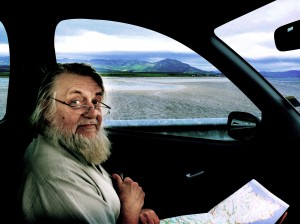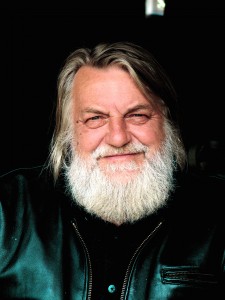
Were Robert Wyatt your only source of Robert Wyatt information you’d conclude he was the most useless scrub ever to presume to make records. Repeatedly during our hour-long telephone chat he refers to himself as “rubbish”, insists how little he knows about music, or deflects questions by discussing someone else.
Yet Wyatt is that rarest musical creature: a mould-breaker who continues to crack them nearly 50 years on. Perhaps his nearest equivalent is Tom Waits, but where Waits has used theatricality as another instrument, Wyatt has always been charmingly homespun.
That term is especially apt for his recent output, made layer by layer in the Lincolnshire home he shares with his wife, the artist Alfie Benge. His albums allow his deep appreciation of pop, jazz and twentieth-century classical music to mingle gently and quite unselfconsciously.
That same unselfconsciousness was present when Wyatt played in arguably the first band to meld rock and jazz, the Wilde Flowers, which became the ground-breaking Soft Machine in 1966. Wyatt dismisses the innovation as just awareness of a broad set of musical possibilities.
Having failed to rise to parental and teacher expectations on violin or trumpet in his teens he attempted suicide. “It wasn’t some tragic thing,” he scoffs. “I just thought, `I’m never going to be able to do that grown-up stuff, so I’m not even going to bother to prepare for it.'” He overdosed on pills, was discovered and survived. “The headmaster came to meet my parents and said, `I think Robert may be unhappy about something!'” He chortles at the understatement.
The upshot was exit school and enter Canterbury Art College, where was he also “rubbish”, so took to nude modelling and drumming in the Wilde Flowers. Singing was soon added, Wyatt’s voice being unique, rather like a muted trumpet.
Having left Soft Machine to form the even more remarkable Matching Mole, Wyatt fell out of an upper-floor window at a party and was paralysed from the waist down, ending his career as a kit-drummer. He responded with the near-masterpiece that is Rock Bottom (1974).
Since then he has continued making splendidly artless albums (singing and playing keyboards, percussion and trumpet), while guesting occasionally on discs by the likes of Brian Eno, Nick Mason, Bjork and David Gilmour.
“I don’t want to rely on other people,” he says of his record-making practices. “That’s to do partly with being unable to do much, being disabled, and trying to prove to myself that I can take things on and make myself do things.”
But the working is spasmodic. “I do as little as possible,” he chimes. “There’s no shortage of people churning stuff out. I do things where I think if I don’t do this, nobody else is going to, so I’d better, because it might be nice.”
To his surprise Daniel Yvinec of France’s Orchestre National de Jazz suggested recording 2009’s Around Robert Wyatt . Sceptical at first, Wyatt was thrilled by the end results. “I think I cried, actually,” he says. “I was so moved that anybody would bother to do this… I was as moved as I was when I had a first grandchild.”
Having abandoned live performance and its attendant applause long ago Wyatt has lost his confidence out in the headlong musical world. “I feel like a bloke on a bicycle in a fast-moving motorway,” he says, “ready to pull into a siding at any opportunity – along with the rabbits and the other things that shouldn’t really be there!”
Thank the stars he is. Just not on stage.
A much longer version of this story will appear soon…